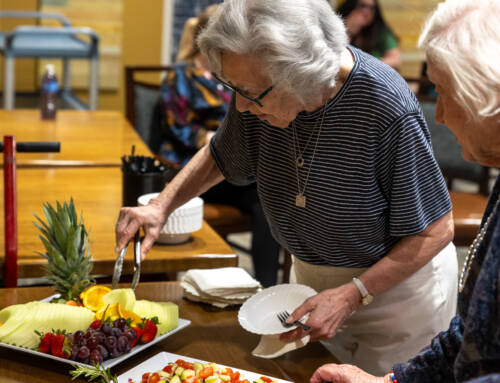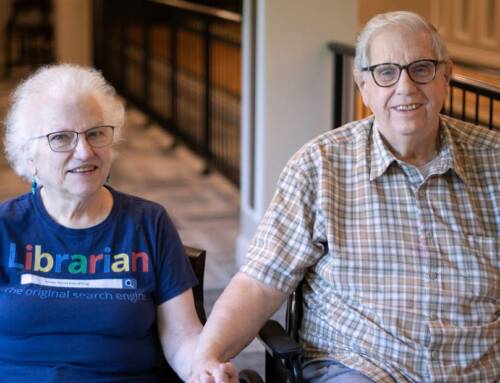While anyone can experience a drug interaction, seniors are often more at risk.
“Generally, older patients respond differently to medications because of the physiological alterations made as one ages,” Don Brindisi, pharmacy manager at Masonic Villages, said.
The liver and kidneys help metabolize drugs and remove them from the body. However, the aging process cause internal changes that affect the effectiveness of this process.
“The elderly have less cytochrome P-450 (CYP450), an enzyme involved in drug metabolism, which leads to the change in drug metabolism being less pronounced. Since seniors are often taking larger quantities of drugs, they have an increased risk of many CYP450 interactions, whether it’s inhibiting or enhancing the enzyme’s effects,” Brindisi said.
You can reduce your risk of CYP450 interactions by cutting back the amount of drugs you take.
“Taking multiple medications concurrently may become problematic to a patient’s health; the risk of drug interactions and drug-related problems increases with the use of multiple medications,” Brindisi said.
Some lifestyle changes (exercise, therapy, diet, etc.) can eliminate or reduce the need for specific medications. Also, look for herbals and dietary supplements to remedy minor health problems (i.e., ginger for nausea instead of antacids). However, make sure to tell your primary care physician and pharmacist, since these can cause adverse drug interactions.
“Common herbals that interact with certain drugs include green tea, kava, grapefruit juice, Echinacea and certain vitamins,” Brindisi said. “Be mindful when mixing herbals with prescribed drugs, and properly communicate with a health care provider before adding a new dietary supplement into your daily regimen.”
Above all, consistency and communication with medical professionals can keep you from drug interactions.
“Patients should pick one healthcare provider rather than going to a different one each time. Being prescribed medications from multiple healthcare providers – especially those working independently of each other – is likely to lead to drug interactions.” Brindisi said.
To establish a medication profile, he recommends the “brown bag assessment,” where a patient brings in all the medicines they are currently taking in a bag for the doctor to review. This should happen at a patient’s first visit to a provider, and at least three to 12 months after the first time conducted.
“Although proper counseling and prescribing lays more on the doctor, it is important for the patient to follow through with keeping up with regular check-ups, follow-up appointments and proper communication with their provider to allow for the best possible treatment and outcome,” Brindisi said. “Patients who understand what they are taking and are knowledgeable of their health and treatment are more likely to modify their behavior to avoid any preventable problems that may occur with the way they are taking their medicine.”
The pharmacy at the Masonic Village is located at the front of the Elizabethtown campus in the Sycamore Square Marketplace. Hours are Monday – Friday, 8 a.m. – 6 p.m., and Saturday, 2 – 4 p.m. Convenient delivery available. Call 717-361-5599 for more information.

About the author: Megan Hess, a senior from Messiah College, is a public relations associate at Masonic Villages.




